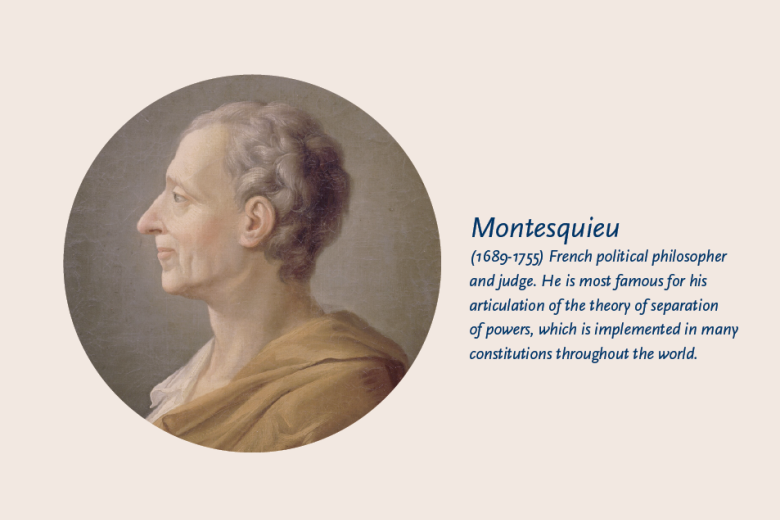The long read: complex, not impossible (part1)
Let’s make one thing clear from the start. The Federal Republic of Germany is not facing a constitutional crisis – not by a long stretch. This is despite the Liberals walking away from exploratory negotiations on forming the next federal government with the Christian Democrats (CDU), the Christian Social Union (CSU; which only runs in the state of Bavaria) and the Greens – an alliance that would have been known as the Jamaica Coalition (named after the colours of that country’s flag, with black standing for the CDU/CSU, green for the Greens and yellow for the Liberals).

The collapse of exploratory coalition negotiations is many things, a constitutional crisis it certainly is not.
With Liberal leader Christian Lindner proclaiming on Sunday night that the talks had broken down due to a lack of trust and policy overlap between the four parties, Germany was suddenly faced with the prospect of protracted political uncertainty. Whilst these developments were decried by the parties left at the proverbial altar by the Liberals, it is important not to buy into the hype of a constitutional crisis. The Basic Law, having served as the Federal Republic’s constitution since its foundation in 1949, has proven to be remarkably resilient – so resilient, in fact, that the sitting chancellor is only the eighth in the country’s post-war history. There has only been one chancellor who has been removed from office in the Federal Republic’s 67-year history.
Indeed, the coming days and weeks are likely to demonstrate that the Founders of modern, democratic (West) Germany chose wisely when they enacted the Basic Law. It boils down to several mechanisms contained in the country’s constitutional charter: the election of the Chancellor, the role of the Federal President, the confidence motion asked by the Federal Chancellor, the mechanisms underpinning the removal of the Federal Chancellor and the ability to form a minority government.
Transition and Continuity
Germany’s lower house of Parliament, the Bundestag, was elected on 24 September 2017. The election results left the Bundestag with the following distribution of seats:
- CDU/CSU (Christian Democrats, centre-right) 246 seats
- SPD (Social Democrats, centre-left) 153
- AFD (populist-nationalist) 94 seats
- FDP (Liberals) 80 seats
- Greens (centre-left) 67 seats
- The Left (populist-socialist) 69 seats
With the notification of the final result and the gathering of the newly elected MPs for their first meeting, the erstwhile federal government under Chancellor Angela Merkel became a transitional caretaker government – in office until the election of the next chancellor (which could very well be Ms Merkel). By convention, the caretaker government (which is a Grand Coalition between CDU, CSU and the Social Democrats (SPD)) will not take major decisions in this transitional period – especially in order to not prejudice the next federal chancellor and government’s ambit of action.
That said, there is no power vacuum in Germany – there is an acting federal government, alongside a freshly elected lower house of Parliament, which can take immediate decisions in emergency situations, including any threats faced by the financial markets or the Eurozone economies. Ms Merkel retains the full powers of the chancellorship (especially bearing Article 65 of the Basic Law in mind), whilst the ministers in her erstwhile Grand Coalition federal government retain full authority over their departments until the inauguration of the new chancellor and his/her new federal cabinet. The Federal Constitutional Court is fully operational and has continued issuing decisions vital to Germany’s constitutional fabric (including the recognition of a third gender in the country’s birth registries). The Bundestag is transacting routine parliamentary business, including the extension of international military missions by German’s armed forces.
Tough Spot
With the Jamaica Coalition talks having collapsed, the only other option securing a majority for Ms Merkel is another Grand Coalition between the CDU/CSU bloc and the SPD. However, the Social Democrats (led by former Speaker of the European Parliament, Martin Schulz) are in no mood for another stint in government. The SPD suffered major losses, essentially completing its decline from erstwhile centre-left party of government (under Chancellors Willy Brandt, Helmut Schmidt and Gerhard Schröder) to an also-ran, mid-sized party barely managing to get more than 20% of the popular vote. Having suffered from the basic problem of Ms Merkel taking the credit for the achievements of her Social Democratic cabinet ministers, the SPD has had enough and wishes to regenerate in opposition. Indeed, a central role in what happens next falls to Germany’s Federal President, former Foreign Minister Frank Walter Steinmeier (himself a Social Democrat). Will he be able to persuade Martin Schulz to join a coalition in what would ostensibly be the national interest?
Whilst there have been rumours of some SPD leaders being uneasy about the party’s unwillingness to continue in government, it is highly doubtful whether Schulz (or even a successor, should one be installed in due course) would do a full reversal on the rejection of another Grand Coalition – a statement unanimously backed by the party’s executive on Election Night, when the collapse of Jamaica Coalition talks was no less a realistic possibility than on Sunday night. Joining another coalition and therefore giving Angela Merkel a fourth term in power may very well serve to deprive the Social Democrats of the last shred of credibility they may have in the eyes of its own voters – who may look elsewhere or just stay at home when the next federal elections come around.

Historic First
This brings us back to the next question: What happens if the Social Democrats keep refusing? There are two options: a minority government and the dissolution of the Bundestag. Let’s explore these two options now. To date, Germany’s never had a sustained period of minority government at the federal level. The sole exception to this is September 1982, when the Liberals terminated their coalition agreement with the Social Democrats under Chancellor Helmut Schmidt on 17 September 1982. Schmidt immediately thereafter formed a minority government consisting only of Social Democratic cabinet members. However, he himself was under no illusion that his days as chancellor were numbered. On 1 October 1982, using the constructive no-confidence procedure in Article 67(1) of the Basic Law, the majority of the Bundestag (namely the CDU/CSU and most of the Liberal MPs in the Bundestag) elected Helmut Kohl – and thus ended Helmut Schmidt’s term in office.
In qualitative terms, 2017 is not 1982. First, there are more parties in the Bundestag today than during Schmidt’s time (7 as opposed to 4 – with the AFD, the Greens and the Left being part of today’s Bundestag, alongside the CDU/CSU, SPD and FDP). Second, Ms Merkel (or another Christian Democrat leader – more about this later) is facing a tactically advantageous terrain: the Social Democrats have just been decimated and will realistically require at least 2-3 years to recover from their poor performance. The Greens barely won a few extra seats in the last federal elections, despite opposition basically priming the party as a key player in any future government. Meanwhile, the Liberals cannot be sure about fresh elections ending well for them, either. The only two parties that might wish to risk an election are those who are not sought after by the other parties – the nationalist-populist Alternative for Germany and the socialist-populist Left Party.
Shifting Gears
Third, despite severe losses in the federal elections, Ms Merkel remains unchallenged within her own party – whether out of cold pragmatism or genuine affection for a Chancellor who manoeuvred the CDU into first place in 2005, 2009, 2013 and 2017, the Christian Democrats are unwilling to execute a palace coup yet. However, other chancellors (such as Ludwig Erhard, the architect of the country’s economic miracle in the 1950s) were removed for far less, and the next few weeks will demonstrate the Christian Democrats’ willingness to tough it out.
Fourth, Ms Merkel is understandably not too keen on fresh elections – given that she was unable to patch together a coalition of different hues, one that would have suited her arguably liberal-pragmatic credentials and moderating personality, serious doubts as to her electoral viability are appropriate. Fifth, after 12 years of the Merkel era, it has become clear that the steam has effectively run out of the electoral machine that was the country’s first female chancellor. Even though she has been able to count on uninspiring, drab Social Democratic challengers thus far, the question remains whether she wishes to share in the fate of her erstwhile mentor Helmut Kohl – who, after 16 years, overstayed his welcome and was defeated by the Social Democratic premier of Lower Saxony, Gerhard Schröder in the 1998 federal elections.
Finally, Ms Merkel has no plausible opponent in the opposition ranks – the current opposition, stretching from Social Democrats and Greens to nationalist populists, all the way to the Liberals and Socialists, will never be able to agree on a joint candidate for the chancellorship. Constitutionally, by virtue of Article 67 of the Basic Law, Ms Merkel remains secure.
Arguably, the formation of a Christian Democrat minority government would be a historic first in the country’s history. For some reason, maybe due to the legacy of the failed Weimar Republic and Hitler’s subsequent rise to power, minority governments are associated with instability, gridlock and ineffective leadership. However, this is somewhat undeserved. At the state level, minority governments have been successful. The states of North-Rhine Westphalia, Hesse, Saxony-Anhalt, Berlin and Hamburg have all witnessed various minority administrations. Internationally, countries as diverse as Canada, India, the United Kingdom, New Zealand, Denmark, Norway, Finland and Sweden. In Canada, a minority government ushered in the creation of Medicare. In Denmark, Finland and Sweden, minority governments have led to these countries obtaining some of the highest standards of living across the world. In New Zealand, a country with an electoral system very similar to Germany’s, minority governments are the default – rather than the exception.
| Read part 2 on the current political situation in Germany More blogs on Law Blogs Maastricht |
-
House of Cards: when your worst enemy is one of your own
In the 1980s, in the heyday of Thatcherism, Scottish actor Ian Richardson starred in the leading role of Francis Urquhart in the BBC series House of Cards. In it, Urquhart, who starts out as the Chief Whip for the Conservative government led by Thatcher’s fictional successor, schemes against and...

-
Johan Rudolph Thorbecke
(1798-1872). Dutch liberal statesman. Drafted the 1848 revision of the Dutch Constitution that established the parliamentary system.

-
Montesquieu
Since the educational spaces in our faculty have all been named, we would like to tell about the background of the elected jurists and cases. Through a series of blogs we want to make the names come to life and show that our building houses a legal faculty. After all, not everyone knows all the ins...
